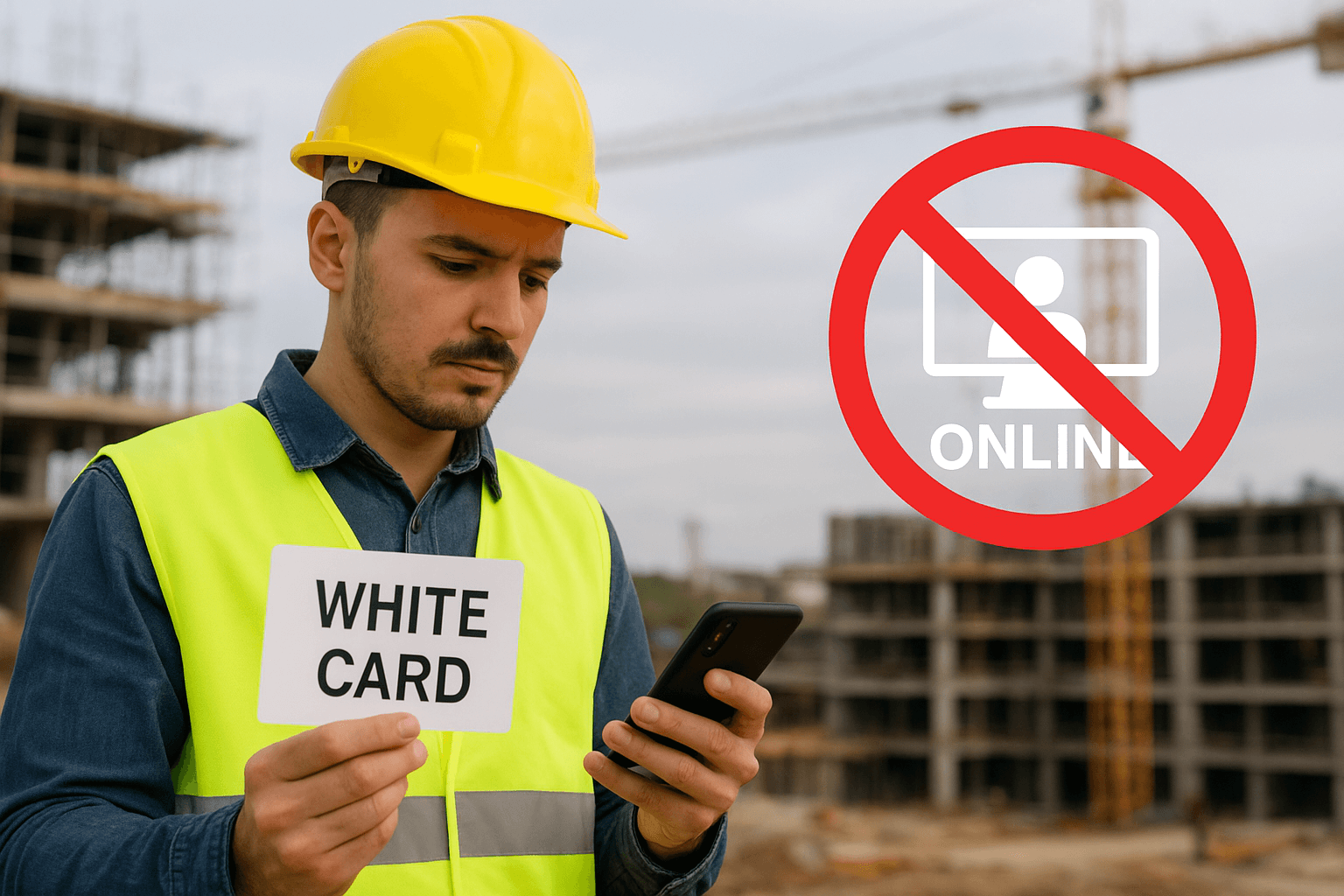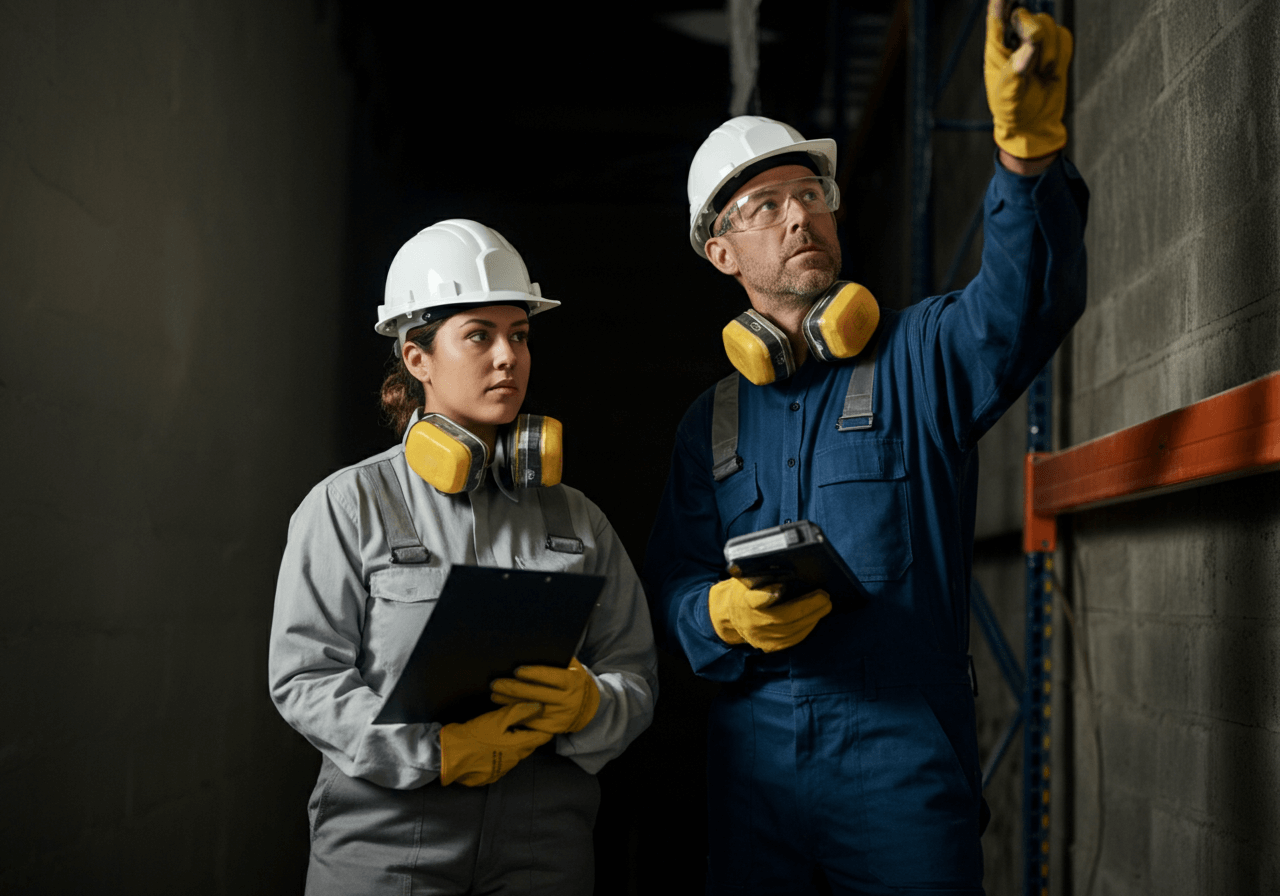
The White Card is an essential requirement for anyone working in the construction industry in Australia. It proves that a worker has completed mandatory training that equips them with the knowledge to work safely on construction sites. White Card training is designed to reduce risks by ensuring that all workers understand safety responsibilities, can identify hazards, and know how to act in case of emergencies. The card is nationally recognised, meaning a qualified worker can generally work across state borders, but some differences in training delivery remain. For first-time workers in particular, knowing the requirements in each state is crucial, as not all jurisdictions accept online courses.
What the White Card Training Covers
The training covers a wide range of safety fundamentals that prepare workers for the risks present on construction sites. A central component is learning how to identify common hazards, such as working at heights, using power tools, or handling hazardous substances. Participants are also introduced to the responsibilities under the Work Health and Safety (WHS) laws, including what is expected from workers, supervisors, and business operators.
Another important area is emergency procedures. Workers are trained on how to respond effectively to incidents such as fires, injuries, or chemical spills. They also learn about the importance of reporting unsafe conditions promptly. The correct use of Personal Protective Equipment (PPE) is also emphasised, with practical instruction on helmets, gloves, masks, and other safety gear. Finally, the course outlines safe work practices across various construction tasks, reinforcing how safety must remain central to every job performed on site.
National Recognition vs State-Based Differences
Although the White Card is nationally recognised, each state regulates how training is delivered. Safe Work Australia sets out national competency standards, but state and territory regulators have authority over implementation. This means that a card obtained in one state is usually valid nationwide, yet the way it is earned can vary.
For example, in most states, workers can complete training online if the provider meets strict verification requirements. However, certain jurisdictions are more cautious about online delivery. They argue that in-person interaction ensures that first-time participants fully understand the practical side of construction safety. This difference highlights the balance between accessibility and maintaining consistent safety standards across the country.
Why Some States Reject Online Training for First-Timers
New South Wales and Victoria are notable for their restrictions on 100% online training for first-time applicants. SafeWork NSW and WorkSafe Victoria both require either face-to-face sessions or video-linked webinar style formats where trainers can directly observe participants. The concern is that fully online courses do not always provide the same level of supervision and engagement as in-person instruction.
There have also been cases of fraudulent activity with online assessments, raising doubts about whether some workers genuinely acquired the required knowledge. Another issue is that online-only delivery may overlook the importance of demonstrating safe practices in real-world settings. For these reasons, regulators in NSW and VIC insist on higher levels of trainer oversight, ensuring that first-time workers are fully prepared before entering construction sites.
States Allowing Online White Card Training
In contrast, states such as Queensland, Western Australia, Tasmania, the Australian Capital Territory, and the Northern Territory allow online White Card training under specific conditions. Providers must verify the identity of participants, often through live video checks or proctoring systems. Some states require learners to be on camera for the entire session to confirm their attendance and participation.
This flexibility recognises that not all workers live close to training centres. It also helps those entering the industry from regional or remote locations access training more easily. However, even in these jurisdictions, the expectation is that training quality and engagement are not compromised by the online format. Accredited training organisations like AlertForce meet these requirements by using systems that maintain both compliance and convenience.
Impacts on First-Time Construction Workers
For someone entering construction for the first time, these state differences can be confusing. A worker may assume that online training is accepted everywhere, only to find out later that their White Card is not valid in NSW or VIC if obtained entirely online. This can create costly delays in starting work. It also raises the risk of choosing a provider that is not properly accredited, which can lead to invalid certification.
This highlights the importance of checking state regulations before enrolling in training. Reputable training organisations make these requirements clear and ensure that workers receive the correct form of delivery. AlertForce, for example, provides guidance on which training modes are accepted in each state, helping workers avoid mistakes that could affect their employment opportunities.
Online vs Face-to-Face White Card Training
| Factor | Online Training | Face-to-Face Training |
| Accessibility | Available in several states with conditions | Available nationwide |
| Cost | Generally more flexible but still regulated | Comparable, with travel or venue requirements |
| Compliance by State | Restricted in NSW and VIC for first-timers | Accepted everywhere |
| Best Suited For | Experienced workers or remote locations | First-time learners and high-risk environments |
This comparison shows that while online learning is convenient, face-to-face delivery remains the most reliable choice for first-time applicants in certain jurisdictions.
How to Choose the Right Training with AlertForce
Selecting the right provider is critical for both compliance and safety. AlertForce is a nationally accredited organisation offering White Card training that meets the requirements of each state and territory. Training delivery is tailored according to jurisdiction, ensuring that participants meet both national competency standards and local rules.
For first-time learners, AlertForce offers structured guidance and support to help them understand the fundamentals of construction safety. For those who have previously worked in the industry, refresher training is available in formats that suit their schedules. By providing both online and face-to-face options where permitted, AlertForce ensures that workers receive training that is valid, recognised, and effective.
Common Misconceptions About the White Card
A common misconception is that the White Card is simply a piece of plastic and therefore not important. In reality, it represents completion of a training course that equips workers with essential safety skills. Without it, workers cannot legally enter a construction site.
Another misunderstanding is that once a person holds a White Card, they never need further training. While the card itself does not expire, refresher training may be recommended in some workplaces to ensure ongoing safety knowledge. Finally, some assume that online training is always easier and faster. In truth, this is not always the case, especially in states where online delivery is not accepted for first-time applicants.
Final Thoughts
The White Card is a vital entry point into the construction industry, ensuring that every worker understands safety basics before stepping onto a site. While it is nationally recognised, the rules about how training can be delivered differ between states. For first-time workers, understanding whether online training is accepted is critical to avoiding invalid certification.
Compliance, safety, and proper preparation should always take priority over convenience. Choosing an accredited training provider helps eliminate the risk of wasted time and ensures that your qualification is accepted in the state where you plan to work.
If your team needs nationally recognised training that complies with every state requirement, contact AlertForce today to enrol in the right White Card training for your needs.
FAQs:
What is a White Card?
A White Card is proof that a person has completed mandatory safety training required to work in the Australian construction industry.
Why do some states reject online White Card training?
States like NSW and VIC require face-to-face or supervised video sessions for first-timers to ensure proper learning and reduce risks of fraud.
Is a White Card valid across all of Australia?
Yes, the White Card is nationally recognised, but the way it is obtained must meet each state’s compliance rules.
Can I complete White Card training online?
Yes, in states such as QLD, WA, TAS, ACT, and NT, online training is accepted if delivered by an accredited provider with strict checks. Webinar options are always better to remove ambiguity.
How do I know if my White Card provider is accredited?
Always confirm that the training organisation is an RTO approved by the relevant state regulator. AlertForce is one such accredited provider.
A White Card is proof that a person has completed mandatory safety training required to work in the Australian construction industry.
States like NSW and VIC require face-to-face or supervised video sessions for first-timers to ensure proper learning and reduce risks of fraud.
Yes, the White Card is nationally recognised, but the way it is obtained must meet each state’s compliance rules.
Yes, in states such as QLD, WA, TAS, ACT, and NT, online training is accepted if delivered by an accredited provider with strict checks. Webinar options are always better to remove ambiguity.
Always confirm that the training organisation is an RTO approved by the relevant state regulator. AlertForce is one such accredited provider.




















